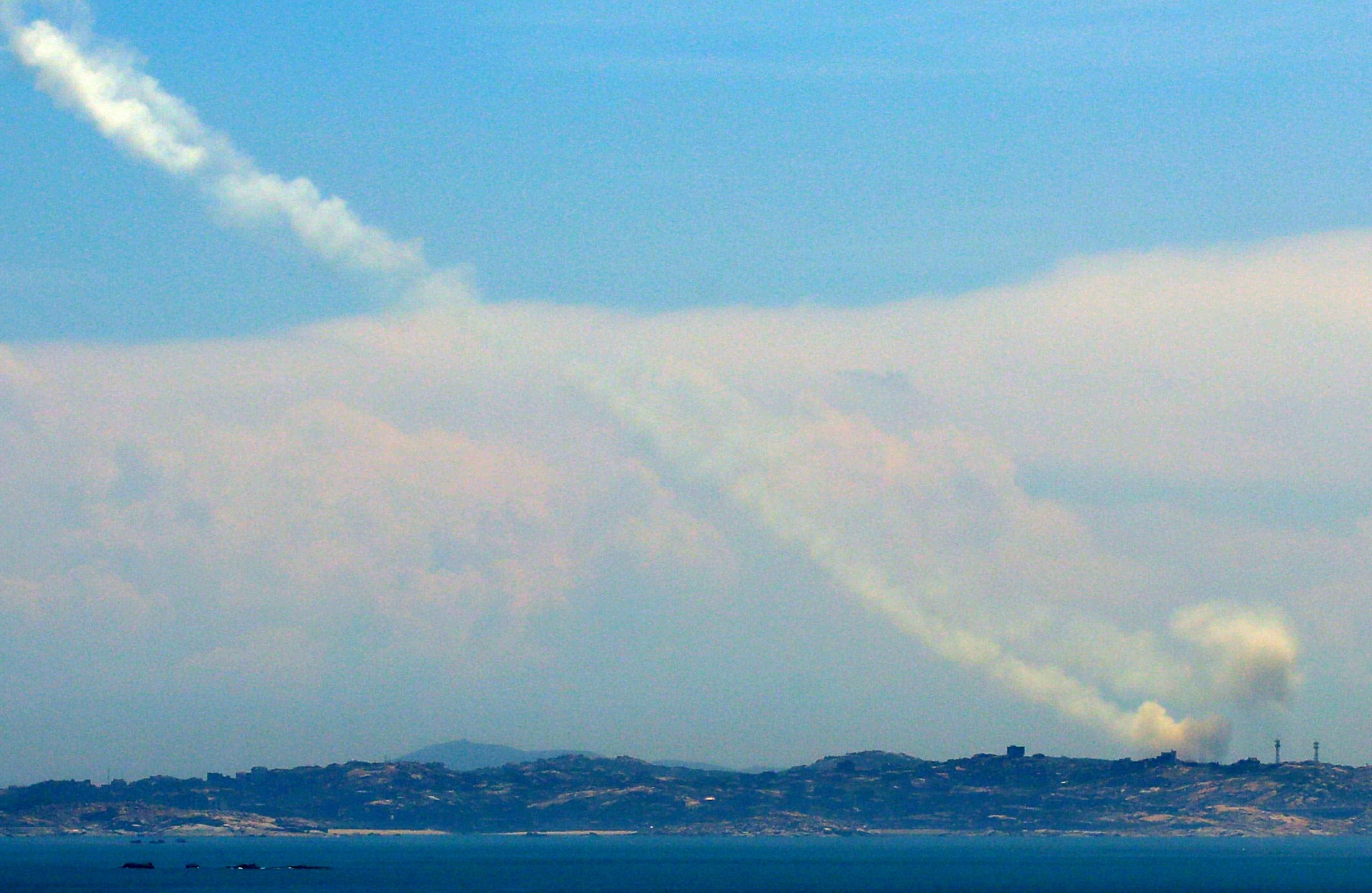China fired on Thursday multiple conventional ballistic missiles near Taiwan for the first time since 1996.
The launch was part of the largest-ever live-fire drills by the Chinese military in the area in response to US House Speaker Nancy Pelosi's visit to the self-governing island earlier this week. Beijing says the missiles hit their targets inside the "exclusion zones" the People's Liberation Army set up in waters surrounding Taiwan after Pelosi confirmed her trip.
The Taiwanese military activated its missile defense systems and scrambled fighter jets. Taipei also claims that Chinese fighter jets and warships briefly crossed the Taiwan Strait demarcation line into its airspace and territorial waters, and that several government websites have suffered cyberattacks. Many international flights in and out of the island have been cancelled.
Meanwhile, the US Navy confirmed that an aircraft carrier and strike group are already near the area, conducting a regular patrol mission in the Philippine Sea.
The last time China fired missiles at Taiwan — to intimidate voters ahead of the island's first fully democratic presidential election — President Bill Clinton responded by ordering two US aircraft carriers into the Taiwan Strait. Beijing ultimately backed down.But that was more than 26 years ago, when the Chinese military was much weaker.
Will Joe Biden deliver on his recent gaffes/promises and risk war with China to defend Taiwan? Or will he stick to the "strategic ambiguity" of the 1979 Taiwan Relations Act, in which America commits to helping Taiwan defend itself? Perhaps time for Biden to try to calm things down with Xi Jinping on another Zoom call.
- Will she, won't she? The fallout from Pelosi's Taiwan talk - GZERO ... ›
- The Graphic Truth: China swarming Taiwan's skies - GZERO Media ›
- Would China really invade Taiwan? - GZERO Media ›
- US and China's changing status quo on Taiwan - GZERO Media ›
- As Pelosi tours Taiwan, China flexes its military muscle - GZERO ... ›
- Pelosi Taiwan visit reflects extremely strong US Congress support - GZERO Media ›
- China escalates on Taiwan; US-China relations get worse - GZERO Media ›
- Romney: "We're not as militarily ready as we would like" in the Pacific - GZERO Media ›
